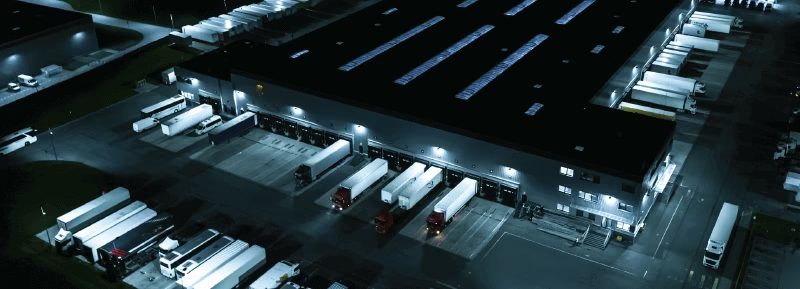Eliminating Crime and Protecting Employees at Marathon Petroleum
Marathon Petroleum's Los Angeles Refinery used LVT units to cut crime, stop breaches, and ensure safety compliance, boosting overall security.



After 28 years in law enforcement, Tim Garcia found himself supervising the security at the Los Angeles Refinery (LAR), owned by oil industry giant Marathon Petroleum. A direct supplier of the Los Angeles International Airport and big-name fuel distributors, and heavily monitored by the Department of Homeland Security, Marathon needs to protect its facilities and employees from crime.
After a rash of car thefts, burglaries, increased break-in attempts, and noncompliance with key safety measures, Garcia needed a budget-friendly, highly effective way to deter crime and secure the LAR campus.
.avif)
Results
LVT placed one unit in the refinery’s most problematic parking lot, and Marathon Petroleum noticed immediate success, asking for additional units. After a poor experience with a competitor’s system, the company experienced a successful reduction in transient activity, facility breaches, and other crimes.
Eliminated crime against employees and others in refinery parking lots
After multiple individuals reported vehicle thefts, stolen catalytic converters, and valuables being stolen from their cars, LAR management needed a way to mitigate crime and preserve an atmosphere of safety and security on their property. With powerful cameras, strobe lights, and customizable PA features that welcome guests to the facility, LVT Units put a stop to crime in the refinery’s parking lots and to the unpleasant aftermath faced by would-be victims.
Some employees were skeptical about the cameras at first, but soon became accustomed to the safety and security they provided.
Put an immediate stop to break-in attempts at the facility
Before partnering with LVT, LAR dealt with breaches, attempted breaches, and burglaries in its facilities. Not only did these break-ins often lead to stolen tools and materials, but they also jeopardized the reputation and standing of the refinery and company. Yearly audits from the Department of Homeland Security mandate that the refinery, including the complex machinery, chemicals, and other materials inside be up-to-code, a status jeopardized by breaches.
Shortly after LVT had deployed units in the refinery’s parking lots, a breach was attempted at the facility’s south end. Perpetrators cut into the perimeter fence for three days, only partially deterred by patrols. When LAR management moved one of the LVT Units to the area in danger, the attempt was eliminated. LVT Units have since deterred any subsequent breach attempts.
Ensured that essential workplace safety protocols were followed.
At a Marathon Petroleum property–specifically the Los Angeles Refinery–jet fuel, diesel fuel, and gasoline are produced in a large chemical system. The nature of the crude oil and its refining process makes workplace conditions volatile, requiring everyone in the refinery to wear extensive personal protective equipment (PPE) to protect against potential fires, chemical leaks, and other disasters. Corporate policy mandates PPE to provide protection for the 2000+ employees, contractors, and visitors on-site at any time.
Before the company’s partnership with LVT, Marathon Petroleum began noticing some entrants to the facility who weren’t wearing their required PPE. Deploying LVT Units has eliminated this issue: employees and contractors are now influenced by the cameras’ presence to comply with safety policies, thereby improving the safety of the refinery and those within it.
Looking ahead
Marathon Petroleum’s partnership with LVT to secure their Los Angeles Refinery has significantly reduced crime at the vast chemical plant and eliminated some offenses altogether. Los Angeles Refinery represents a successful first chapter in a fruitful partnership with Marathon Petroleum, as LVT Units have already begun to be used at additional Marathon facilities in Martinez, California. This case demonstrates the power of LVT Units to secure the most lucrative and critical operations at industrial facilities and beyond.
You'll Also Love These!
Test Out the Best Security Strategy
We offer a free consultation and a custom end-to-end security strategy for your unique situation. Connect with an LVT specialist to see if you qualify for a risk-free trial.

.avif)




